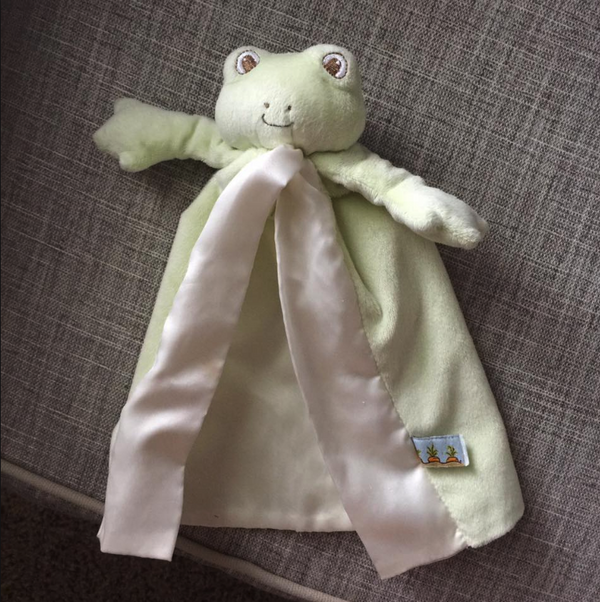When Can My Baby Sleep With a Blanket or Stuffed Animal

Sleeping and sleep safety are perhaps one of the most popular topics among new parents. Regardless of where you live in the world, understanding how babies sleep and how to keep them safe during sleep seem to be universal areas of concern. When it comes to sleep safety, we typically want to refer back to organizations like the American Academy of Pediatrics to help guide our sleep-related decisions for our babies. One particular area of interest for parents is surrounding what should and should not be in your baby’s sleep space.
For babies up to 1 year of age, there should be nothing in your baby’s sleep space except for your baby! I once heard a pediatrician say to a brand new parent in the hospital, “The only cute thing that should be in your baby’s crib or bassinet should be your baby!” Therefore, a safety-approved crib or bassinet and a firm mattress with a fitted sheet is what we want parents to plan for in preparing their baby’s sleep space. If you are concerned about your baby’s comfort and warmth during sleep, we recommend dressing your baby in one additional layer of clothing than you would be comfortable in, and using a sleeper or sleep sack, otherwise known as a wearable blanket. A loose blanket within a baby’s sleep space can increase the risk of suffocation. Young babies are quite restless while they sleep, and a blanket can easily become tangled around their bodies or cover their faces. Using a wearable blanket will keep your baby warm and comfortable while also keeping them safe. Continue to follow the recommendations for a safe sleeping environment throughout your baby’s first year of life.
After your baby’s first birthday, the risk of SIDS dramatically decreases. However, many pediatricians will still advise against adding a blanket to a baby’s crib until babies are older than 18 months. One important thing to consider regarding this matter is to better understand why a parent might want to use a blanket in their baby’s sleep space? Why would we assume our babies need a blanket for sleep? As adults, most of us sleep with some type of fabric covering that might range from a sheet to a thick down comforter, and most of us feel like we need a blanket in order to stay warm and comfortable in sleep. Babies do not need a sleep space that looks or feels like an adult bed. Soft bedding, blankets and pillows are quite dangerous for young babies. If warmth is the concern, dress your little one in one additional layer at bedtime. Also, the use of a wearable blanket or sleep sack can continue beyond your child’s 2nd birthday, and these will keep little ones warm and comfortable during sleep. Some parents may think a blanket or comfort object like a stuffed animal are necessary to support a baby’s feelings of security within their sleep space. However, a baby can learn to sleep comfortably without these items, and will not usually become dependent on a blanket or stuffed animal as a sleep association unless an adult begins to make that blanket or object a part of the baby’s regular sleep routine. Therefore, remember that babies will find comfort from an attentive caregiver, a consistent sleep routine, and through the development of self soothing skills to help them fall asleep independently.
If you do decide to introduce a blanket or comfort object into your baby’s sleep space, we advise that you wait until your little one is at least 18 months old. When adding a blanket, be sure to choose a thin blanket made of breathable fabric such as linen, muslin, or thin cotton. If a special object or stuffed animal begins to accompany your baby to their bed, try to encourage small additions instead of giant teddy bears that double as pillows! Sometimes, a small comfort item, or “lovey” can help older toddlers and preschoolers feel more comfortable at bedtime, especially if they need a bit more wind-down time before falling asleep. These little bedtime supports are usually fine unless it becomes evident that your child is staying awake and playing with the object instead of using it to relax and fall asleep.
Your baby’s sleep space is supposed to be clear of all items that could increase the risk of SIDS and suffocation. Remember that your little one is the only adorable thing that should be in their crib or bassinet! Keep your baby warm by using a wearable blanket or sleep sack well into their toddler years. Blankets are not necessary for your baby’s comfort or security, but if you choose to begin using them for your baby, wait until your baby reaches at least 18 months of age.